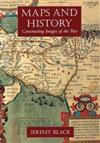| FindBook |
有 2 項符合
Maps and History : Constructing Images of the Past的圖書 |
 |
Maps and History : Constructing Images of the Past 作者:Jeremy Black 出版社:N/A 出版日期:2000-09-10 語言:原文書 |
| 圖書館借閱 |
| 國家圖書館 | 全國圖書書目資訊網 | 國立公共資訊圖書館 | 電子書服務平台 | MetaCat 跨館整合查詢 |
| 臺北市立圖書館 | 新北市立圖書館 | 基隆市公共圖書館 | 桃園市立圖書館 | 新竹縣公共圖書館 |
| 苗栗縣立圖書館 | 臺中市立圖書館 | 彰化縣公共圖書館 | 南投縣文化局 | 雲林縣公共圖書館 |
| 嘉義縣圖書館 | 臺南市立圖書館 | 高雄市立圖書館 | 屏東縣公共圖書館 | 宜蘭縣公共圖書館 |
| 花蓮縣文化局 | 臺東縣文化處 |
|
|
圖書介紹 - 資料來源:TAAZE 讀冊生活 評分:
圖書名稱:Maps and History : Constructing Images of the Past
Historical atlases offer an understanding of the past that is invaluable to historians, not only because they convey a previous age's sense of space and distance but also because they reveal what historians and educators thought important to include or omit. This book - the first comprehensive and wide-ranging account of the historical atlas - explores the role, development and nature of this important reference tool and discusses its impact on the presentation of the past.
|










